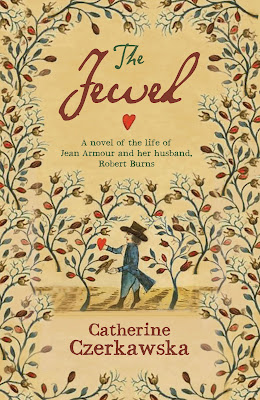A little while ago, I published a collection of my poetry, written over many years: Midnight Sun. Interestingly, this came as a surprise to some of my friends who didn't realise that I had once focused almost wholly on poetry. I started in my teens, carried on through my university years, and for a long time after - so the collection is arranged chronologically, although those teenage poems remain firmly at home in the 'beginners' folder where they belong.
When I look back over my poetry, it didn't dry up completely, although at the time it seemed like it. I was busy writing drama, first for radio and then for the stage, with a small excursion into television. At the same time, I was working on fiction, long and short. I had a couple of novels published, but then there was a hiatus while I focused on drama, and when that dried up, I went back to fiction, publishing nine novels, so far.
From time to time, though, I would feel that only a poem would do, to express what I wanted to say. I've been told that some of my novels - the Physic Garden and Bird of Passage in particular - as well as some of my plays, are 'poetic' or 'lyrical', so perhaps part of the creative energy that once went into my poems had gone into those novels.
When I started putting this collection together, I wondered how I would feel about these poems that cover so much of my life. I left out much more than I put in. Many are love poems, but none the worse for that. Many of them have already been published over the years in a variety of small literary magazines. One or two have even won prizes. Some of them reflect the fiction I was working on at the time - poems about Robert Burns, a poem about Clarinda for example. Some of them were inspired by family history research undertaken when I was writing a book called A Proper Person to be Detained, about a murder in my family in 1881.
I didn't even consider 'submitting' these anywhere. In fact I won't be submitting anything ever again and what a relief that is! But I did engage some expert help. A Polish friend, Michał Piasecki, (he posts as Keen Photographer on Facebook) is a talented landscape photographer and I have been using some of his beautiful images for my book covers. The excellent Duncan Lockerbie of Lumphanan Press has worked on book and cover design for me here and for other books, and he has made a wonderful job of this collection. In fact people keep complimenting me on the design of the book as much as the poems - which I'm happy about, because one of my reasons for 'going independent' with my work was to try to maintain the quality of the physical product. To be able to work with a professional to make the book as good as it could be within the financial constraints that exist.
If you read the book and enjoy the poems I'd be grateful for a review. Even a few lines on Amazon would be helpful. But if you can't do that, I still hope the poems speak to you in some way, that you can find something to identify with, something that strikes an emotional spark.
A friend remarked to me yesterday that we all have secret rooms inside us, areas of our experience, places that even close friends don't know about each other. Poetry often taps into those places and experiences. It can help us to understand that our similarities are more important than our differences and that even our differences are other ways of seeing the world, other ways of experiencing our common humanity.






